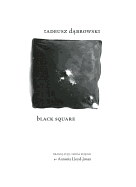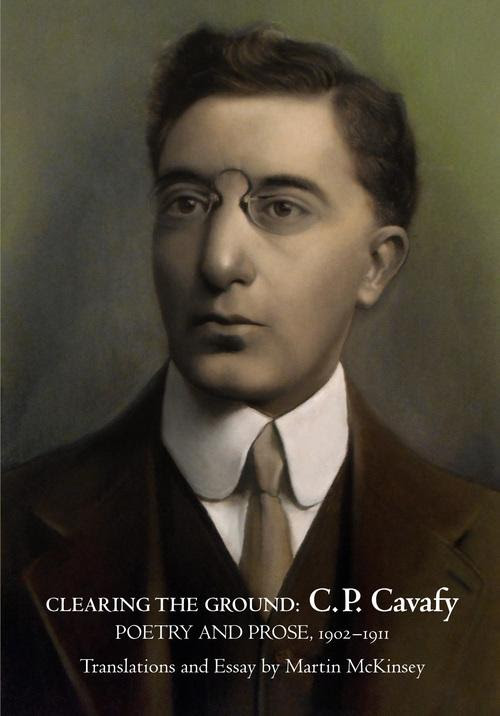Grolier Poetry Book Shop, coming up on its 90th anniversary, is the oldest all-poetry bookshop in America.The shop has been a home to many great poets, and poetry lovers from all over the world, and remains a destination for poets visiting Boston; one can always be sure to find conversation in its small square space tucked into a side street around the cover from Harvard Yard. Great poets who frequented the shop as readers and patrons include Elizabeth Bishop, Robert Creeley, ee cummings, TS Eliot, Allen Ginsberg, Frank O'Hara, Marianne Moore, Adrienne Rich, Frank Bidart, David Ferry, Michael McClure, Kimiko Hahn, Maxine Kumin, Robert Pinsky, Ariana Riens, and Franz Wright.The latest selection of staff-recommended titles in translation appear below. Beyond the intrinsic value of the literature on offer, keep in mind that purchases made directly to a bricks-and-mortar shop not only help to show support for literary culture, but provide direct support to an institution that has hosted innumerable in-person encounters among writers, readers, and literature-lovers over the years. Click here to learn more about supporting this irreplaceanble institution via direct giving to the Grolier Legacy Fund. Or, sign up here to receive their email updates directly. | |
Black Square by Tadeusz Dabrowski
Translated from Polish by Antonia Lloyd-Jones. $15. Tadeusz Dabrowski was born in northern Poland in 1979. From his first volume, published in 1999, he has been critically acclaimed for poetry that combines a tone of metaphysical meditation with the theme of love. His poems are like snapshots taken by a sensitive camera that captures moments filled with the "caring absence" of God and intimacy with the woman the poet loves. Here we find gravity laced with humor and sublimity mixed with pleasure. So far Dabrowski has published five volumes of poetry in his native Poland, which have won him numerous awards. His work has appeared in translation in thirteen European languages. English translations of his poems by Antonia Lloyd-Jones have been published in leading literary journals including Agni, American Poetry Review, and Tin House. Black Square is his first collection to be published in English.
Antonia Lloyd-Jones is a translator of Polish literature. In 2008 she won the Found in Translation Award for her translation of The Last Supper, a novel by Pawel Huelle. Her other translations of fiction include works by Jaroslaw Iwaszkiewicz and Olga Tokarczuk. Her translations of poetry by Jacek Dehnel appeared in a recent anthology, Six Polish Poets, published by Arc Publications.
| |
Black Stars by Ngo Tu Lap
Translated from Vietnamese by Martha Collins. $16. "A beautifully rendered translation by Vietnamese poet Ngo Tu Lap and acclaimed American poet Martha Collins, Black Stars introduces a man who is both attached to his war-haunted childhood home and deeply conversant with contemporary global life.
Simultaneously occupying past, present, and future, Black Stars escapes the confines of time and space, suffusing image with memory, abstraction with meaning, and darkness with abundant light. In these masterful translations -- printed alongside the original Vietnamese -- the poems sing out with the kind of wisdom that comes to those who have lived through war, traveled far, and seen a great deal. While the past may evoke village life and the present a postmodern urban world, the poems often exhibit a dual consciousness that allows the poet to reside in both at once. From the universe to the self, we see Lap's landscapes grow wider before they focus: black stars receding to dark stairways, infinity giving way to now. Lap's universe is boundless, yes, but also
| |
Fusion Kitsch by Hsia Yu
Translated from Chinese by Steve Bradbury. $13. Steve Bradbury writes: "Hsia Yü's frank and innovative treatment of gender and sexuality in a small handful of poems in this collection and in her second collection Ventriloquy (Fuyushu) was seized upon by critics and scholars anxious to find a candidate to fill the long-vacant post of "Chinese feminist poet." But while Hsia Yü may well have been one of the first woman poets writing in Chinese to have written about love and romance in a manner that broke dramatically from the conventions and constraints of traditional Chinese women's poetry, if we bother to look beyond labels at the poetry itself, we will find a body of work that is far less interested in providing a critique of gender relations or advancing a sexual/textual agenda than in exploring the sensuous and quirky interface between the pleasures of the flesh and the pleasures of the text. It is this preoccupation with pleasure that sets Hsia Yü apart from other poets writing in Chinese today; that and the fact that her poetry embodies a fusion of styles and influences -- both high and kitsch -- with the French influence running perhaps stronger than most."
Among her numerous honors, Hsia Yü was most recently awarded the Taipei City Literature Award for her book Salsa.
| |
Door Languages by Zafer Senocak
Translated from German by Elizabeth Oehklers Wright. $16.95. Lee Upton, author of Undid in the Land of Undone, writes: "Door Languages, in Elizabeth Oehlkers Wright's brilliant translation, sends us news of the stranger within us who keeps putting on and taking off a cloak of invisibility. This is bracing work. Line by insinuating line, Zafer Senocak peels back our most rigid assumptions. These poems, marked by the highest ambition, read like folk tales from the future."
Askold Melnyczuk, founder of Agni: "A fine edgy satisfyingly demystifying voice."
| |
Clearing The Ground by C.P. Cavafy
Translated from Greek by Martin McKinsey. $17. "Clearing the Ground conveys the texture of Cavafy's written life through the course of a near decade -- the threads of preoccupation, the unfolding elucidations, the occurrence of the poems in their shining clarity. What appears is an active and intimate image of Cavafy, the poet and the man."
| |
Darkness Spoken by Ingeborg Bachmann
Translated from German by Peter Filkins. $24.95. Ingeborg Bachmann was born in 1926 in Klagenfurt, Austria. She studied philosophy at the universities of Innsbruck, Graz, and Vienna, where she wrote her dissertation on the philosophy of Martin Heidegger. In 1953 she received the poetry prize from Gruppe 47 for her first volume, Borrowed Time (Die gestundete Zeit), after which there followed her second collection, Invocation of the Great Bear (Anrufung des großen Bären), in 1956. Bachmann also went on to write short stories, essays, opera libretti, and novels, including The Thirtieth Year, Malina, and The Book of Franza. At the time of her death in a fire in Rome in 1973, Bachmann was at work on a cycle of novels titled Todesarten (Ways of Dying), of which Malina was the first published volume.
Along with her close friend Paul Celan, Bachmann was considered the premiere German language poet of her generation. Her various awards include the Georg Büchner Prize, the Berlin Critics Prize, the Bremen Award, and the Austrian State Prize for literature. Her work remains highly influential to this day, and she is now regarded as a pioneer of European feminism and postwar literature. Influencing numerous writers from Thomas Bernhard to Christa Wolf, Bachmann's poetic investigation into the nature and limits of language in the face of history remains unmatched in its ability to combine philosophical insight with haunting lyricism.
Peter Filkins has published two volumes of poetry, What She Knew (1998) and After Homer (2002), and has translated Bachmann's The Book of Franza and Requiem for Fanny Goldmann. He is the recipient of an Outstanding Translation Award from the American Literary Translators Association and the Berlin Prize from the American Academy in Berlin. He teaches at Simon's Rock College of Bard in Great Barrington, Massachusetts.
|
Monday, October 31, 2016
Six translation recommendations from the Grolier
Thursday, October 27, 2016
Sven Birkerts on That Continual Hmmmmm
Over the past few months, I’ve observed a more sophisticated and focused outreach effort from the marketing team at AGNI magazine. Their social media is sharper, their content tempo more on pace, and their monthly email newsletter to subscribers and supporters quite well worth reading. As far as I can tell, the mini-essays that editor Sven Birkerts contributes to these newsletters aren’t available elsewhere. A shame...
Wanting to share the latest edition more widely than I could by simply forwarding the email, I’ve elected to take the initiative and re-print the essay here on Ampersand. (Sven, if you think this presumptuous, please accept my apologies and let me know if you’d allow just an excerpt, or, better yet, an out-link directing readers to somewhere they CAN read the text, in an authorized way.) Enjoy!
- ZB
“That Continual Hmmmmm”
by Sven Birkerts
[The AGNI email newsletter, October 2016.] I’m fascinated by the waxing and waning of words and usages and of the concepts that underlie them. What is it that first puts a notion on everybody’s lips, and then later makes it eye-roll material as soon as it hits some indeterminate expiration date? Who decides? Is it just a matter of saturation? If that were true, our political life would have expired long ago. Maybe it did.
The word on my mind today is “voice,” and it’s there because after years and years of not daring (or wanting) to use it—it had become such a cliché in the writing world: you need to find your voice, what is the voice doing in this piece?—it suddenly sounded plausible again. Just recently someone asked me to talk about voice in essay-writing and I didn’t even flinch.
Subscribe to:
Comments (Atom)









